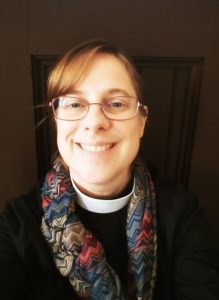Of Soap and Water
I briefly wondered who had taught him the English words “soap” and “five.” He couldn’t have been more than ten years old, standing out on the sidewalk in 90-degree heat with his satchel full of soap and a smile that radiated to his eyes. “Soap? Five shekel.”
Our guide explained that the boy was from the refugee camp next door, located in what had been the biblical city of Sychar, now in the Palestinian territory. For more than two generations, its residents, displaced from the wars in Syria, had lived a life of poverty in limbo. The local people did not welcome them. Already resource poor, they saw the camp as encroaching on their livelihood, and dangerous. Rooted in their own ancestral land, they at best saw the refugees as squatters, and wanted nothing more than for these displaced people to go back to their own country.
No doubt, the refugees also would have wanted this, if only there were a country to which they could return. Even if peace were to settle firmly in what had been their homeland, after two generations their homes would be gone, along with everyone they ever knew there. Instead, they were strangers in a strange and unwelcoming land, unable to work and socialize among the general public, or even to be recognized as full citizens of their new nation. After two generations, the camp, in its poverty and hopelessness, was their home.
There are actually three large camps here, founded in the 1950’s after the waves of Israeli-Palestinian conflicts left many homeless. Tens of thousands of people live in the camps, and no one pretends that the residents are always peaceful in accepting the overcrowding, lack of sanitation and privacy, and rampant poverty. Sixty percent are under the age of twenty-five.[i] These are the second, third, even fourth generation of refugees who have never known any other life but the camp.
As one of their few economic opportunities, the women make olive oil soap and send their little sons out to sell it by the Church when the tour groups come by to see the well where Jesus told the Samaritan woman that he, indeed, was the Messiah of God. Our guide explained that most tour groups ignored the children, but if we wanted to buy some soap on the way out, we should do so. She said she always bought a few bars. “Even if you won’t use them,” she told us, “I want the children to see that the Christians who come here are good to them.” Even when no one else was, Christians needed to be the good people, safe and trustworthy.
The location itself was not insignificant. It was on this ground that Jesus encountered a woman who was, within her own community, an outcast. Married five times and living with a sixth man, she, too, sought refuge from those who would like nothing more than to be rid of her. This is why she was out at the well in the hottest part of the day. In the mornings, the well was a lively place where women socialized while waiting their turn to draw up the day’s supply of water. Every gallon took five or six minutes to draw up. Twenty gallons would water a single camel. The household’s water needs were a major morning occupation of a woman and a significant social opportunity, too. This woman, an outcast, had avoided the morning and come to the well in the heat of the day when it was deserted because, for her, there were no safe people.
The impact of Jesus on this woman’s life is remarkable. In the course of John 4 itself, she goes from being a social outcast to running into the center of the city to proclaim Jesus. She goes from being a prostitute in the eyes of her neighbors to being a credible prophet. She came to know the identity of Jesus as the Messiah of God, and that made all the difference.
Of course, a five-shekel bar of soap is not going to radically change anyone’s life, but interaction after interaction, it does begin to reveal who these Christians really are. Are these the ones who stop, interact, and humanize the community, or do they, as was the custom of most first-century Jews in this region, take the long way around, avoid, and have no dealings with the community?
Five shekels is not going to lift a community out of poverty. It’s worth about a dollar and a quarter, and feels like less, being only a small coin. Yet, though it is but a drop in the bucket, drop by drop it can wear away at hopelessness and cycles of violence that come from desperation, saying to an invisible community, we, the Church, see you. Drop by drop, shekel by shekel, one human interaction at a time, refugees receive the refuge of Jesus.
[i] https://www.unrwa.org/where-we-work/west-bank/balata-camp










